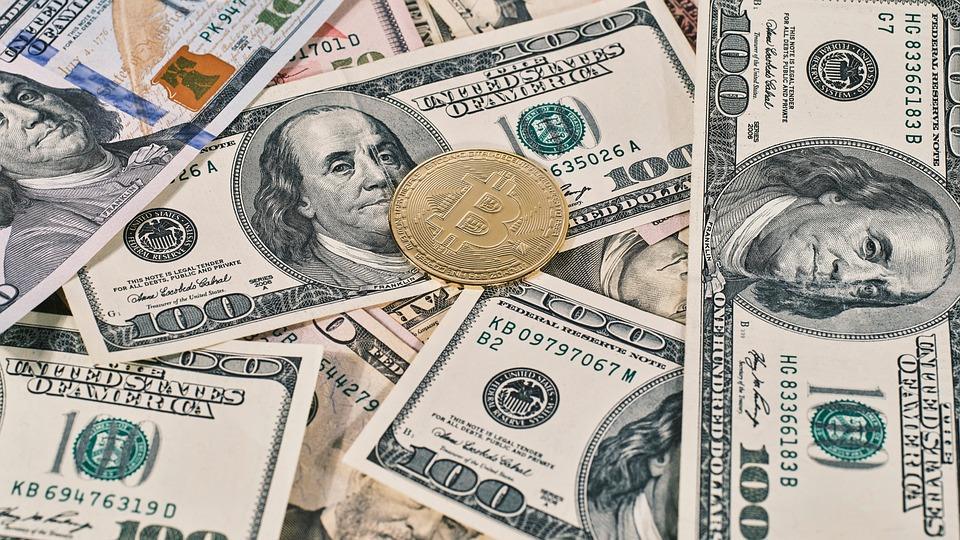Digital currencies are revolutionizing the way we think about money and transactions. They’re not just a trend; they’re a transformative force that’s impacting your financial life right now. Understanding digital currencies isn’t just for tech whizzes anymore; it’s crucial for everyone.
Contents
- What Are Digital Currencies?
- Why Should You Care?
- 1. The Rise of Bitcoin and Beyond
- 2. Blockchain Technology: The Backbone of Digital Currencies
- 3. Volatility: The Double-Edged Sword
- 4. Regulation is Evolving
- 5. The Importance of Security
- 6. The Growing Acceptance of Cryptocurrencies
- 7. DeFi: Decentralized Finance
- 8. NFTs: The New Digital Collectibles
- 9. Environmental Concerns
- 10. The Future of Digital Currencies
- Bottom Line
What Are Digital Currencies?
Digital currencies are forms of money that exist only in digital form. Unlike traditional cash, they are not issued by any central authority, making them decentralized. This matters because it gives you more control over your finances. Imagine having the ability to transact without intermediaries—no banks, no fees, just you and your money.
Why Should You Care?
In a fast-paced world, staying informed about digital currencies can empower you to make smarter financial decisions. Whether you’re considering investing, using them for transactions, or just curious, this guide will demystify the landscape for you.
1. The Rise of Bitcoin and Beyond
Bitcoin was the first digital currency, emerging in 2009. But it’s just the tip of the iceberg. Today, there are thousands of cryptocurrencies, each with unique features. Ethereum, for instance, allows for smart contracts—self-executing contracts with the terms directly written into code. This innovation is reshaping industries from finance to real estate.
2. Blockchain Technology: The Backbone of Digital Currencies
At the core of most digital currencies lies blockchain technology. Think of it as a digital ledger that records all transactions across a network. This technology ensures transparency and security, allowing you to trust transactions without needing a middleman.
- Why does this matter? Because it reduces the risk of fraud and makes tracking your assets easier. The more you understand blockchain, the more you can leverage it in your financial strategies.
3. Volatility: The Double-Edged Sword
Digital currencies are notoriously volatile. Prices can skyrocket or plummet within hours, making them risky investments. For example, Bitcoin’s price once surged to nearly $65,000 before dropping to around $30,000 in just a few months.
- What does this mean for you? If you’re thinking about investing, be prepared for the ups and downs. Diversify your portfolio and only invest what you can afford to lose.
4. Regulation is Evolving
Governments worldwide are catching up with the digital currency trend. Countries like El Salvador have even adopted Bitcoin as legal tender. However, many nations are still creating regulations to protect consumers and prevent fraud.
- Stay informed! Regulatory news can impact prices and availability. Websites like CoinDesk offer up-to-date news on cryptocurrency regulations.
5. The Importance of Security
Security is paramount in the digital currency realm. Hacks and scams are unfortunate realities. Keeping your digital assets secure is your responsibility.
- Tips for security:
- Use hardware wallets for long-term storage.
- Enable two-factor authentication.
- Be cautious of phishing attempts.
Your assets deserve protection, so take it seriously.
6. The Growing Acceptance of Cryptocurrencies
More businesses are beginning to accept digital currencies as payment. From major retailers to local shops, the acceptance of cryptocurrencies is expanding.
- Why is this significant? It opens up new avenues for transactions and can even lead to cost savings on fees. You might find yourself using digital currencies for everyday purchases sooner than you think.
7. DeFi: Decentralized Finance
Decentralized Finance (DeFi) is a burgeoning sector within the digital currency space. It allows you to lend, borrow, and earn interest on your cryptocurrencies without traditional financial intermediaries.
- What’s the catch? While DeFi offers great opportunities, it also comes with risks such as smart contract vulnerabilities. Make sure to research platforms thoroughly before diving in.
8. NFTs: The New Digital Collectibles
Non-fungible tokens (NFTs) are unique digital assets verified using blockchain technology. They have gained immense popularity, particularly in the art and entertainment sectors.
- What can you do with NFTs? You can buy, sell, or trade them. They can represent anything from art to music and even virtual real estate. Understanding NFTs can open up a new world of investment opportunities.
9. Environmental Concerns
The environmental impact of digital currencies, particularly Bitcoin, is a hot topic. The energy-intensive mining process has raised concerns about carbon footprints.
- What should you consider? If you’re environmentally conscious, look into cryptocurrencies that prioritize sustainability, like Cardano or Algorand. Your choices can align with your values.
10. The Future of Digital Currencies
The future of digital currencies is bright but uncertain. With ongoing innovations and shifting regulations, staying ahead of the curve is vital. Keep an eye on trends, and don’t hesitate to adapt your strategies.
- How can you prepare? Engage with communities, read reputable sources, and consider taking courses on cryptocurrencies. The more you know, the better equipped you’ll be to navigate this dynamic landscape.
Bottom Line
Understanding digital currencies is not just for tech-savvy individuals; it’s for anyone who wants to take control of their financial future. From the rise of Bitcoin to the complexities of DeFi, each fact you learn is a step toward empowerment.
So, dive in! Whether you choose to invest, transact, or simply learn, the world of digital currencies awaits. Your financial freedom could be just a click away.
Frequently Asked Questions
1. What is the safest way to store digital currencies?
- Use hardware wallets for long-term storage and keep your software wallets updated.
2. Are digital currencies legal everywhere?
- No, the legality varies by country. Always check local regulations before investing.
3. What is the best cryptocurrency to invest in?
- There’s no one-size-fits-all answer. Research and consider your risk tolerance before investing.
Take your first step into the world of digital currencies today!








